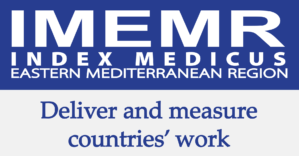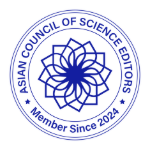Strategies for Improving Memory in Students
DOI:
https://doi.org/10.53685/jshmdc.v3i2.130Keywords:
Memory, Forget, Learning, StrategiesAbstract
Students generally have little to no understanding of the memory processes, resulting in an inability to study effectively. To perform better, it is imperative to take control of memory by understanding how memory works, how information can be committed to memory, and how forgetting can be avoided. Some insight into the cognitive load theory can also be applied to improve learning.
References
Schacter DL. The Seven Sins of Memory - How the mind forgets and remembers.1sted. London: Souvenir Press; 2007.
Wittrock MC. Generative Processes of Comprehension, Educational Psychologist. 1989; 24(4): 345-376. doi: 10.1207/s15326985ep2404_2 DOI: https://doi.org/10.1207/s15326985ep2404_2
Sharif S, Guirguis A, Fergus S, Schifano F. The Use and Impact of Cognitive Enhancers among University Students: A Systematic Review. Brain Sci. 2021; 11(3): 355. doi: 10.3390/brainsci11030355 DOI: https://doi.org/10.3390/brainsci11030355
Bruning RH, Schraw GJ, Norby MM. Cognitive psychology and instruction 5th ed. Boston, MA: Pearson; 2011.
Van Blankenstein F, Dolmans D, Van der Vleuten C, Schmidt H. Relevant prior knowledge moderates the effect of elaboration during small group discussion on academic achievement. Instructional Science. 2012; 41(4): 729-744. doi: 10.1007/s11251-012-9252-3 DOI: https://doi.org/10.1007/s11251-012-9252-3
Ogle DM. KWL: A teaching model that develops active reading of expository text. The reading teacher. 1986; 39(6): 564-570. doi: 10.1598/RT.39.6.11 DOI: https://doi.org/10.1598/RT.39.6.11
Blunt J, Karpicke J. Learning with retrieval- based concept mapping. J. Educ. Psychol. 2014; 106(3): 849-858. Doi: 10.1037/a003 5934 DOI: https://doi.org/10.1037/a0035934
Mwesigye N. TEACHERS PLATFORM: Why do students forget what we teach them?. The New Times. 2015. Available from: https://www.newtimes.co.rw/section/read/18 7219. Accessed on Sep, 2022
Dunlosky J, Rawson K, Marsh E, Nathan M, Willingham D. Improving Students’ Learning with Effective Learning Techniques. Psychological Science in the Public Interest. 2013; 14(1): 4-58. doi: 10.1177/152910061 2453266 DOI: https://doi.org/10.1177/1529100612453266
Jongeward RH, Woodward AE, Bjork RA. The relative roles of input and output mechanisms in directed forgetting. Mem Cognit. 1975; 3(1): 51-57. doi: 10.3758/BF03198210. DOI: https://doi.org/10.3758/BF03198210
Bruning RH, Schraw GJ, Norby MM, Ronning R. Cognitive psychology and instruction. 4th ed. Upper Saddle River, New Jersey: Pearson Education; 2004.
Clark J, Paivio A. Dual coding theory and education. Educational Psychology Review. 1991; 3(3): 149-210. DOI: https://doi.org/10.1007/BF01320076
Ellenbogen JM, Payne JD, Stickgold R. The role of sleep in declarative memory consolidation: passive, permissive, active or none? Curr Opin Neurobiol. 2006; 16(6): 716-722. doi: 10.1016/j.conb.2006.10.006. DOI: https://doi.org/10.1016/j.conb.2006.10.006
Smith C. Sleep states, memory processes and synaptic plasticity. Behav Brain Res. 1996; 78(1): 49-56. doi: 10.1016/0166- 4328(95)00218-9. DOI: https://doi.org/10.1016/0166-4328(95)00218-9
Downloads
Published
How to Cite
Issue
Section
License
Copyright (c) 2022 Fatima Zia Zaidi, Abdul Rehman Zia Zaidi

This work is licensed under a Creative Commons Attribution-NonCommercial 4.0 International License.
You are free to:
- Share — copy and redistribute the material in any medium or format
- Adapt — remix, transform, and build upon the material
- The licensor cannot revoke these freedoms as long as you follow the license terms.
Under the following terms:
-
Attribution — You must give appropriate credit, provide a link to the license, and indicate if changes were made. You may do so in any reasonable manner, but not in any way that suggests the licensor endorses you or your use.
-
Non Commercial — You may not use the material for commercial purposes.
-
No additional restrictions — You may not apply legal terms or technological measures that legally restrict others from doing anything the license permits.





















